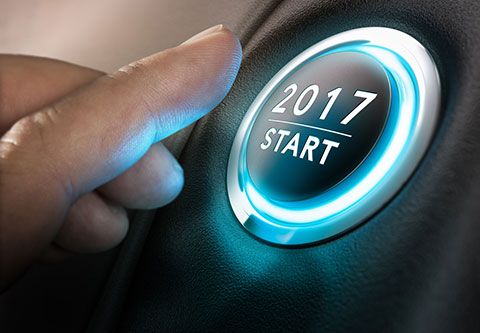2016 was the year of increased polarization and unexpected political results. The sharing economy is already “passé”; we are now in the on-demand economy. So, what will the year 2017 bring?
- Worlds Apart: we are lacking a “trusted” democracy around the world. People do not trust the political decision-makers any longer, and these decision-makers have lost touch with their electorate. Confidence in democracy is urgently needed, because in many countries the political middle is disappearing, and we see more shifts to the left or right wing. Also, we still have plenty of crises to solve: the Euro crisis isn’t really over, the banking crisis (with more loss of jobs partly due to digitalization) will continue, the Syrian crisis, and refugee crisis continues. The banking crisis is the most dangerous for our economic system.
- Integrated Reality: Internet of Things (IoT), Advanced Machine Learning, Virtual and Augmented Reality will all merge into Integrated Reality. Quantum computers will provide the possibility for hyper personalization. Grab your chance! The total internet traffic grows with 22% a year, and we are prepared for Wifi 4+ and G 5 standards, even faster internet.
- Incognito Individuals: people have an increased conscience about privacy and sharing data with others. As a result, the use of advertising blockers and geo-location blockers will increase. Also, one in three people say social networks are their main source of news. Today, people willingly turn their social networks into silos.
- Education: hybrid and online education are the learning forms wanted by most students. Schools will have problems finding students who are willing to pay for education, because so much is available for free and we have the MOOCs. It would be nice to organize a business school that offers entirely free education, or even where the school pays the students to learn and study.
- “Bleisure Travel”: the balance between work and private life disappears; therefore, more business travel will be combined with leisure activities. Stay one day extra at your location to visit museums or relax before you return to a hectic workplace.
- Video rules the world: the number of people who watch “live” TV is decreasing, and digital TV and replay viewing is increasing. Platforms such as Youtube and Facebook Video are the real winners. Youngsters between the ages of 15-22 hardly know what a TV is, as their world consists of videos and video platforms only. According to Cisco, 70% of internet traffic today is already video and it will grow to 82% in 2020.
- Mobile First: the most used item is our Mobile Phone. We wake up to the mobile alarm clock and it is the last device we touch before sleeping.
- Social selling: increasingly important. It is the process of developing relationships, mostly via social networks, as part of the sales process. It can take place online or offline. This process uses the see-think-do-care framework. Due to ROPO (Research offline, purchase online) behavior, ATAWAD consumerism is the new rule: Any Time, AnyWhere, Any Device.
- Return of the handicraft worker: meet the young, local beer brewer in Wallisellen, meet the young cheesemaker in Appenzell. These forgotten professions are coming back. These older professions have found increased value and appreciation again. People are willing to pay more for a local product, made with local ingredients by local people. They understand the higher price and are willing to pay for it because of quality and enjoyment reasons. Additionally, in the circular economy, we try to recycle as much as possible, compared to times of pure consumerism.
- Digital detoxing: the population with the highest risk of suffering burnout is typically people between 25-35 years old. Major reasons: mobbing at work, conflicts with work colleagues, standardization of tasks, and “ always being on” – meaning always being connected to a device, constantly watching to see if you have a message. In several religions, we know there are periods of fasting during the year. I recommend going on a social media fast; for a short period of time you don’t give a “damn” about what is happening in your social network. You learn digital detoxing. It will help you remain alert and so will moving outdoors into nature. We sit 9 hours per day on average. Too long. Go out and move.
Oh yeah…and for those interested in summer fashion trends: Flatforms are the new boho. Make sure you are prepared to amaze.
I wish you a happy Chinese Year of the Rooster and let me know on December 31, 2017 which grade you will give me for these trends.
Happy Reading!
Bert Wolfs, Ph.D.
References:
- Ericsson consumer labs 2017.
- www.bakas.nl
- www.cisco.com

